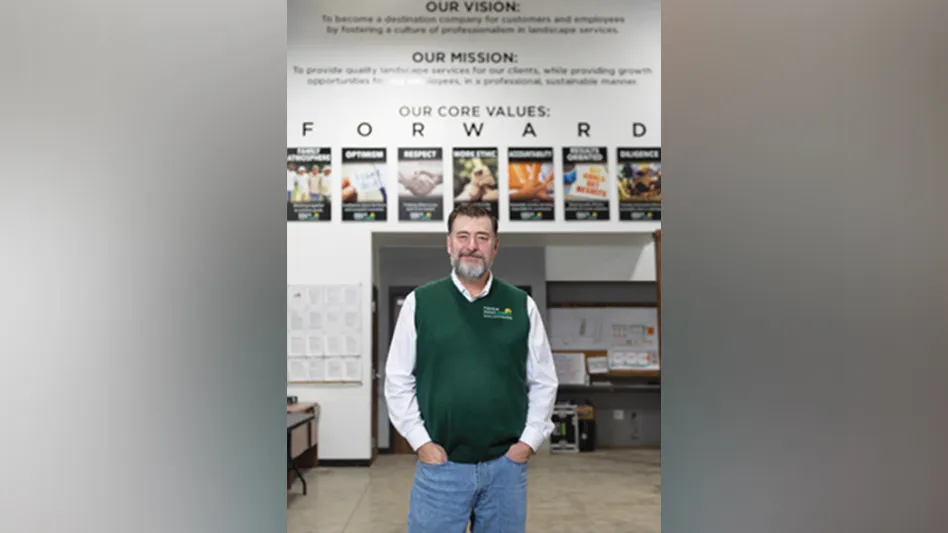 When Glenn Jacobsen first learned about his selection as one of the top industry leaders, his reaction was exactly what most people who know him well thought it would be: “I am humbled,” he said. “It’s not my nature to be in the forefront. I am here to help others and that’s what motivates me.”
When Glenn Jacobsen first learned about his selection as one of the top industry leaders, his reaction was exactly what most people who know him well thought it would be: “I am humbled,” he said. “It’s not my nature to be in the forefront. I am here to help others and that’s what motivates me.”
Jacobsen sees himself as a servant leader – someone who wants to serve first. Then, conscious choice brings one to aspire to lead. He is steeped in church and volunteer work, serving on a multitude of nonprofit boards and community projects.
“It’s important to give back as much as you can at whatever level you can,” he says. And he is one who truly puts his money where his mouth is, supporting charities and causes he believes in.
Jacobsen takes his leadership very seriously. “Leading a team is a most important job,” he says. “You have to be a visionary. You have to look ahead with clear direction and goals. You have to see a beginning and an end. It’s vital that you support your team.”
Over the years, leading upper management and serving on multiple boards, Jacobsen has seen all kinds of leaders in action from quiet to verbal, weak to strong.
 “I watch others that I admire,” he says. “I read numerous books on the subject. All are a little bit different, but the really good ones share the guiding principle of leading with direction and vision.”
“I watch others that I admire,” he says. “I read numerous books on the subject. All are a little bit different, but the really good ones share the guiding principle of leading with direction and vision.”
To be a good leader, you have to know yourself well, he says. “I know I am a very calm person. Good leaders possess honesty and integrity – they do what they say. If you are a good leader, you have to have good follow through. You have to tell the truth even though it may be uncomfortable.”
Jacobsen believes it’s important to allow your leaders to make mistakes. “As long as they learn from it, and don’t repeat the same ones a third time, just move on!” he says. “Leadership skills can be learned. Some people are born leaders. Anyone can be a leader if they want to be. The key word here is ‘want.’”
Like a lot of other people in the landscaping industry, Jacobsen started in the landscaping business at a young age, when he was in his mid-teens. His father was a part-time tree trimmer who also operated a small greenhouse.
Jacobsen earned his associate’s degree in ornamental horticulture when he started his own company. “When I was in high school, I started my own landscaping business working in neighbor’s yards. I went to college only a couple of years. For the past 32 years, I have run my own business.”
Jacobsen credits his father for having a huge influence on him by instilling a strong work ethic. Most people say they have mentors who show them the ropes, teach them how to be a good businessperson and sharpen their skills. Not Jacobsen. Rather, he says that God is his mentor.
“I was given direction by God for what I wanted to do. That’s what has made me tick for the past 25 years,” Jacobsen says.
He also credits Melissa, his wife of 26 years, who also assists him in business operations as chief financial officer, for giving him a tremendous support structure, both personally and at work. “We work as a team,” he says. “She is the key reason for my success.”
Jacobsen has seen many highs and lows in business economy for the past three decades he’s been working in the industry. Headquartered in the New York City market, Jacobsen’s client base is heavily involved in the financial industry.
“When economic conditions are good and you grow too fast, it’s difficult to maintain the professionalism of staff,” he says. “On the flipside, you have to shift your focus on maintaining clients and retaining staff during a downturn. The current economy is the worst that I have seen and most others agree.”
An eternal optimist, Jacobsen believes the industry will be coming back. “During this economic downturn, a lot of people are negative about their earnings potential, so naturally they are not spending discretionary income which covers landscaping,” he says. “I believe America is strong and economic growth and discretionary income will inevitably come back. It’s just a matter of when.”

Latest from Lawn & Landscape
- Blue Diamond Attachments launches new rotary cutters
- Blossoming opportunities
- Hyundai adds HD100 Tracked Dozer
- Surfacing this summer
- Our July issue is live
- Schill Grounds Management acquires Pinnacle Landscaping
- Michael Hatcher & Associates expands operations to Huntsville, Alabama
- Heatwave hardships





